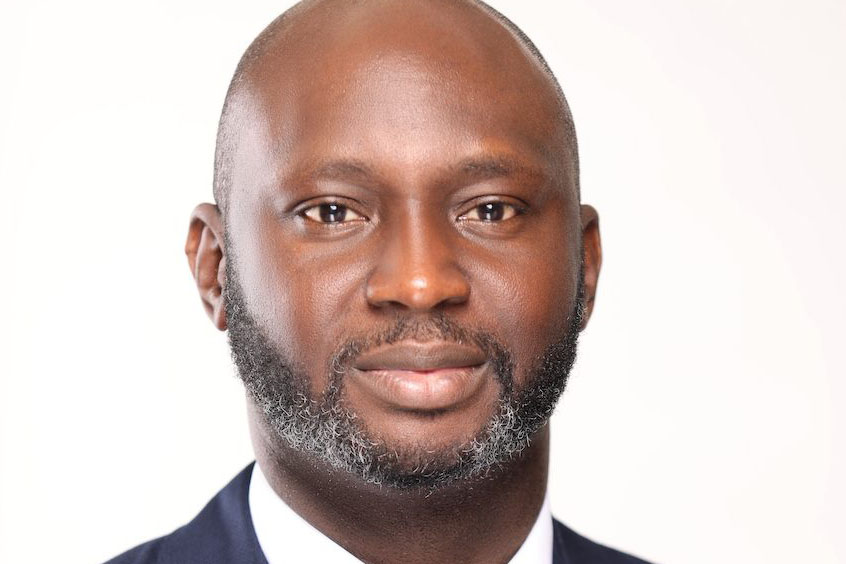 In an era where effective governance and public accountability are more critical than ever, Ayomide Samuel Ogunrinde, a dynamic public administration professional and data analyst, is pioneering innovative solutions at the intersection of technology and public service. Armed with over seven years of experience in public administration, data analysis, and project management, Ogunrinde is making an indelible mark on local government transparency and efficiency.
In an era where effective governance and public accountability are more critical than ever, Ayomide Samuel Ogunrinde, a dynamic public administration professional and data analyst, is pioneering innovative solutions at the intersection of technology and public service. Armed with over seven years of experience in public administration, data analysis, and project management, Ogunrinde is making an indelible mark on local government transparency and efficiency.
Currently a Graduate Research Assistant at East Carolina University and an intern in the City Manager’s Office in Greenville, North Carolina, Ogunrinde exemplifies the power of data to drive meaningful change. His ongoing project—a comprehensive financial dashboard set to replace the city’s OpenGov platform—is a testament to his forward-thinking approach. The dashboard, built using Power BI, is designed to revolutionize how the city visualizes, shares, and analyzes financial data, ensuring transparency and accessibility for stakeholders and residents alike.
“The goal is to provide an intuitive, user-friendly tool that empowers citizens with clear insights into municipal finances,” Ogunrinde explains. “Public trust begins with transparency, and through this dashboard, we’re laying the foundation for stronger engagement and accountability.”
Ogunrinde’s expertise in data visualization, budgeting, and project management has been instrumental in advancing the city’s mission of fiscal transparency. Beyond technical execution, his leadership in project management—balancing timelines, stakeholder feedback, and iterative design improvements—has ensured that the initiative remains on track for its anticipated deployment in summer 2025.
But Ogunrinde’s impact extends far beyond dashboards. At East Carolina University, his research delves into critical issues like rural health disparities and water-related policies affecting coastal cities in North Carolina. These projects reflect his broader commitment to addressing systemic challenges through evidence-based solutions. “Research fuels innovation in public policy,” he notes. “Whether it’s health disparities or municipal governance, the answers lie in data and collaboration.”
Ogunrinde’s journey into public administration and data-driven governance began at Obafemi Awolowo University in Nigeria, where he earned a degree in Public Administration. Following his studies, he honed his administrative acumen as an Assistant Manager at Milestone Livestock Enterprise Limited. There, he oversaw day-to-day operations, policy formulation, and staff supervision, laying the groundwork for his future in public service leadership.
Today, Ogunrinde’s trajectory reflects a global outlook. His education in public administration and health informatics at East Carolina University has equipped him with the tools to tackle 21st-century challenges. From analyzing complex health data to crafting policy frameworks, he is poised to influence governance across sectors and borders.
In addition to his practical contributions, Ogunrinde is a thought leader in public administration. His case study, “Enhancing Citizen Participation through E-Government: A Case Study of Lagos State,” set for publication in a forthcoming Routledge Casebook, underscores his passion for governance innovation. Whether authoring articles for media outlets or presenting strategic ideas to city leadership, he bridges the gap between policy and practice with unparalleled clarity.
As cities worldwide wrestle with the dual demands of transparency and efficiency, Ogunrinde’s work in Greenville offers a blueprint for success. By blending technology, policy expertise, and a deep commitment to public service, he exemplifies the transformative power of data-driven governance.
Looking ahead, Ogunrinde envisions scaling such initiatives to broader contexts. “Technology is the great equalizer,” he asserts. “By leveraging it effectively, we can empower communities, enhance transparency, and drive sustainable development.”
As Ayomide Ogunrinde continues to lead with vision and purpose, his contributions remind us that the future of governance lies in the hands of professionals who understand the power of data, technology, and people-centered solutions. Whether in Greenville, rural America, or his native Nigeria, his mission remains the same: to make governance work for everyone





